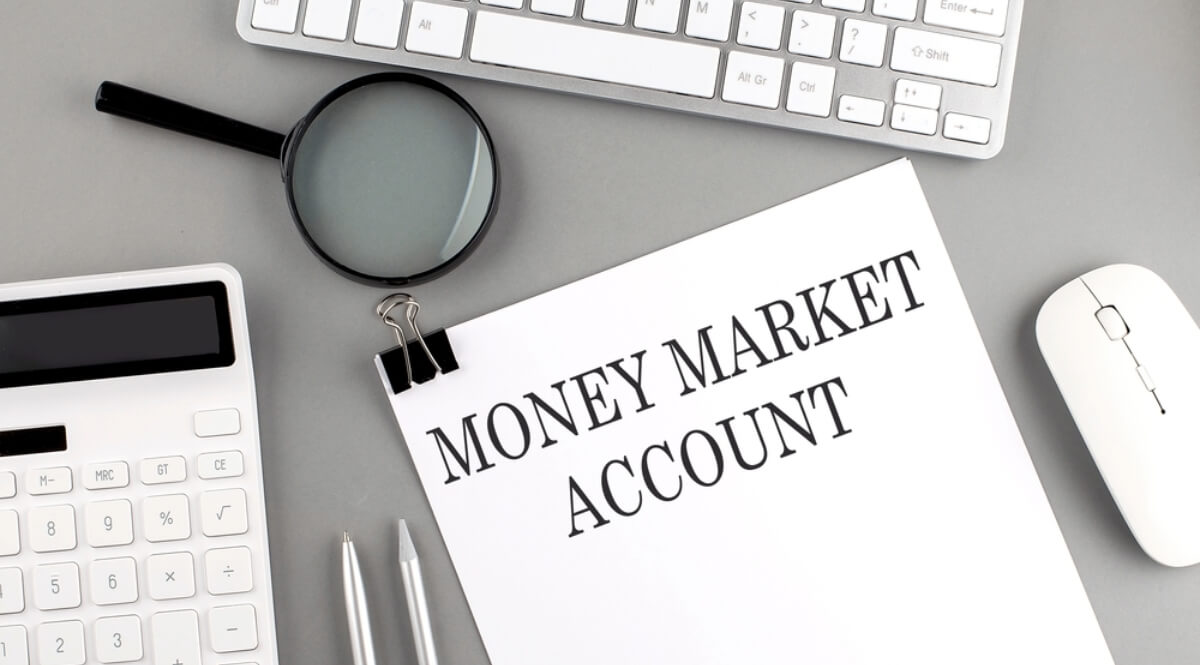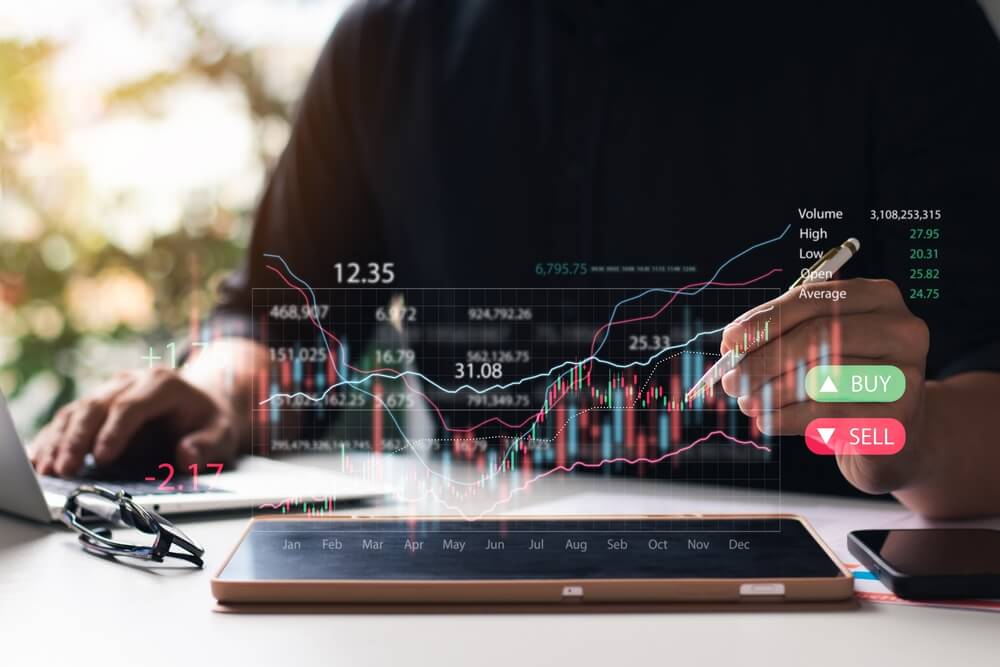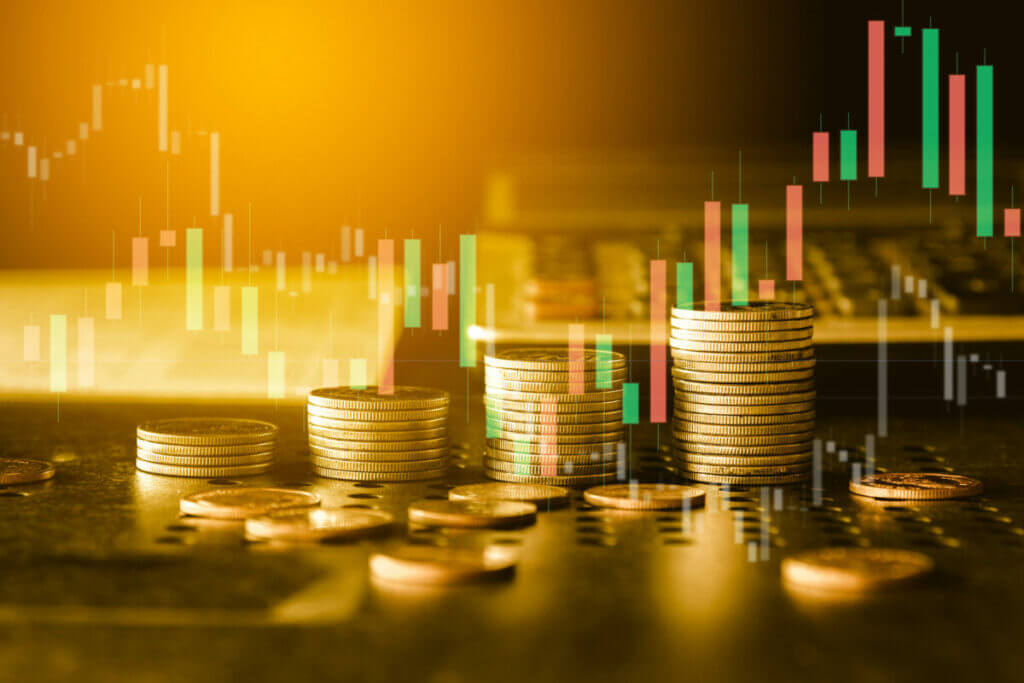
What is a Money Market Account, and How to Use it Like a PRO?
Key Takeaways:
- Money market accounts offer safety and higher interest rates but have transaction limits.
- To open one, compare rates, gather documents, fund the account, set up online access, and arrange direct deposit.
- They provide easier access to funds, while high-yield savings accounts offer higher interest rates but more restrictions.
- Using money market accounts wisely can boost earnings and manage savings effectively.
Have you ever thought about what the money market account stands for? Why is it crucial to have and understand how and why to use it nowadays in the volatile market?
If you enjoy investing or trading and want to increase your earnings, consider opening one of these accounts. It could significantly boost your profits!
Before signing up and learning about the account’s advantages and cons, let’s understand the money market.
What is the Money Market All About?
The money market is where traders deal with not-so-long-life debt instruments. In total, the money market includes trades of the highest volumes that stand between traders and larger institutions.
This market incorporates money market mutual funds bought by investors. It also includes money market accounts opened by bank customers.
In all instances, the money market stands out for two main reasons:
- A high level of safety
- Relatively low returns.
Now, before we understand the market, let’s know what the money market account is all about, shall we?
Money Market Account – Definition and Explanation
A money market savings account is a financial record that multiple banks and credit unions offer. Per the owner, the amount of money is 250,000 dollars.
These money market accounts typically enable their users with exorbitant interest rates than regular savings accounts. However, they often limit transactions made by the following things:
- Check card
- Debit card
- Electronic transfer.
Traders with this account can create withdrawals and instalments of fees without limits through ATM in person, by mail, or by phone. Money market accounts may also need the lowest level deposit.
If you possess more than one money market savings account at a bank or credit union, consult with them to verify the insurance coverage of NCUA or FDIC.
How to Open a Money Market Account?

In case you’re interested in opening an account at the money market, here are the following steps in doing so:
#1. Compare Options
The first step is to search for the legitimate but highest APY. You can do so by comparing rates at different banks and credit unions. Once you complete the comparison, check for variable rates and ensure no high monthly fees.
Pick a bank insured by the FDIC or a credit union by the NCUA. Pick a local branch if you prefer in-person service.
#2. Gather Documents
The second step is to get yourself the following documents:
- State ID or driver’s licence
- Phone number
- Social Security number
- Proof of address that includes joint owner details, if applicable. Temporarily lift any credit freeze.
#3. Fund the Account
When you gather the necessary documents, it is time to transfer funds digitally. You can do so by using the following:
- Remote check deposit
- Deposit cash or checks at a branch.
Having your other bank’s account details ready for transfer is also important.
#4. Set Up Online Access
The fourth step includes creating an online banking account for easy management. Traders can do so via the bank’s app or website.
Remember to use a strong password with strong letters, numbers, and symbols. This strong password lets you deposit checks, order balances, and transfer money easily.
#5. Direct Deposit Setup
The last, fifth step is to deposit your paycheck into your money market account directly. The main reason for that is to earn interest and save.
It is necessary to provide your employer with the account and routing numbers. Once done, it is time to transfer and access your funds to your checking account for all the expenses.
What is the Emergency Fund?

The emergency fund represents a specific cash received. Having an emergency fund for unexpected situations, such as medical bills, job loss, reduced income, and car repairs, is important.
Differences Between a Money Market Account and a Mutual Fund Account?
Remember, some money market mutual funds let you write checks, but they differ from savings or checking accounts. Numerous brokers along with fund companies, offer these accounts.
Remember that these funds’ regulations differ from those for banks and credit unions. Keep in mind that separate regulations govern them.
For more information on insurance for brokerage firms, check out the Securities Investor Protection Corporation (SIPC).
To learn more about insurance for brokerage firms, visit the Securities Investor Protection Corporation (SIPC).
This organization offers protection if the company fails. The Premier Money Market account offers a relationship-based savings option.
Checking FDIC protection for the money market account is available at the Electronic Deposit Insurance Estimator or by calling the FDIC Call Center.
What is the Difference Between a Money Market Account and a High-yield Savings Account?
A money market account and a high-yield savings account have different features. The main difference is how easily you can access your money and the interest rates offered.
Money market accounts usually have limited withdrawals and higher interest rates than high-yield savings accounts.
On the other hand, high-yield savings accounts offer easier access to your money but may have lower interest rates.
Remember that a money market account offers additional access to your money via the following:
- Direct Checking
- ATM withdrawals.
However, it is crucial to note that it typically provides a lower interest rate.
In contrast, a high-yield savings account pays a much higher interest rate but has transfer limits and rarely allows direct spending.
What is a Premier Money Market Account?
The Premier Money Market account is a savings solution based on relationships. It’s for those curious about what it offers.
For information on insurance in case a brokerage firm fails, check out the Securities Investor Protection Corporation (SIPC).
The SIPC provides details on this type of insurance. This resource explains how your investments are protected if a brokerage firm fails.
The more you engage and invest in this account, the greater your potential to increase your earnings.
What is the Traditional Savings account?
The traditional savings account is a place to store your money. Traders usually open it alongside a checking account.
However, it’s not designed for regular spending. What does it mean? It’s simply not for shopping or automatic bill payments.
Understanding the Money Market

The money market stands as a specific cornerstone of the global financial system. It helps banks and the U.S. government exchange large sums of money overnight.
The majority of the money market transactions occur at the wholesale level, which involve the following:
- Financial institutions
- Corporations.
Key participants in the money market include:
- Banks: They lend to each other and large corporations in the euro currency and time deposit markets.
- Investors: They purchase bank CDs as a safe short-term investment.
- Corporations: These raise funds by issuing commercial paper, which other companies or funds can purchase.
Wholesale transactions eventually reach consumers through money market mutual funds and other investment options.
Who Utilizes the Money Market the Most?
Financial institutions, corporations, and individual investors mostly use the money market.
#1. Companies
Companies borrow money through commercial paper because it provides higher interest rates and different maturity options. However, there is a greater risk of default associated with commercial paper.
#2. Banks
Banks lend money to each other and big companies in the euro currency and time deposit markets. They offer various types of deposit accounts.
#3. Individual investors
Individual investors are the ones who also participate in the money market. These investors favour money market funds for their stability and to maintain a net asset value (NAV) of $1.
Remember that these funds are accessible through banks, brokers, and the U.S. government’s Treasury Direct website.
Also, the following ones provide short-term yet secure investment options:
- Short-term certificates of deposit (CDs)
- Municipal notes
- U.S. Treasury bills
Regarding treasury bills in the USA, investors can purchase these directly from Treasury Direct, banks, or brokers.
#4. Government
Government entities refer to key players as well. The U.S. government issues Treasury bills with maturities from a few days to one year. Its primary dealers purchase large quantities to trade or sell to individual investors.
Also, to raise funds, state and municipal governments issue short-term notes. These participants take advantage of the money market for its following features:
- Safety
- Liquidity
- Short-term investment opportunities.
What are the Best Money Market Rates?

As of May 2024, we’d like to point out the best money market rates in our opinion:
Vio Bank Money Market Account
- Member FDIC
- APY: 5.30%
- Min. balance: $100
UFB Direct Savings Account
- Member FDIC
- APY: 5.25%
- Min. balance: $0
CFG Community Bank Money Market Account
- Member FDIC
- APY: 5.25%
- Min. balance: $1,000
Quontic Bank Money Market Account
- Member FDIC
- APY: 5.00%
- Min. balance: $100
Sallie Mae Bank Money Market Account
- Member FDIC
- APY: 4.65%
- Min. balance: $0
Ally Bank Savings Account
- Member FDIC
- APY: 4.20%
- Min. balance: $0
Discover Bank Savings Account
- Member FDIC
- APY: 4.25%
- Min. balance: $0
EverBank Savings Account
- Member FDIC
- APY: 5.15%
- Min. balance: $0.
Bottom Line
A money market account can help traders improve their financial strategy in today’s uncertain market.
These accounts are a safe way to save your money and earn higher interest rates than a regular savings account. However, they have restrictions on transactions.
To successfully start this, it is crucial to do the following:
- Comparing rates
- Gathering documents
- Funding the account
- Setting up online access
- Arrange direct deposit.
Money market types of accounts are easy to access. On the other hand, high-yield savings accounts provide higher interest rates but have more restrictions. Good luck using it!




